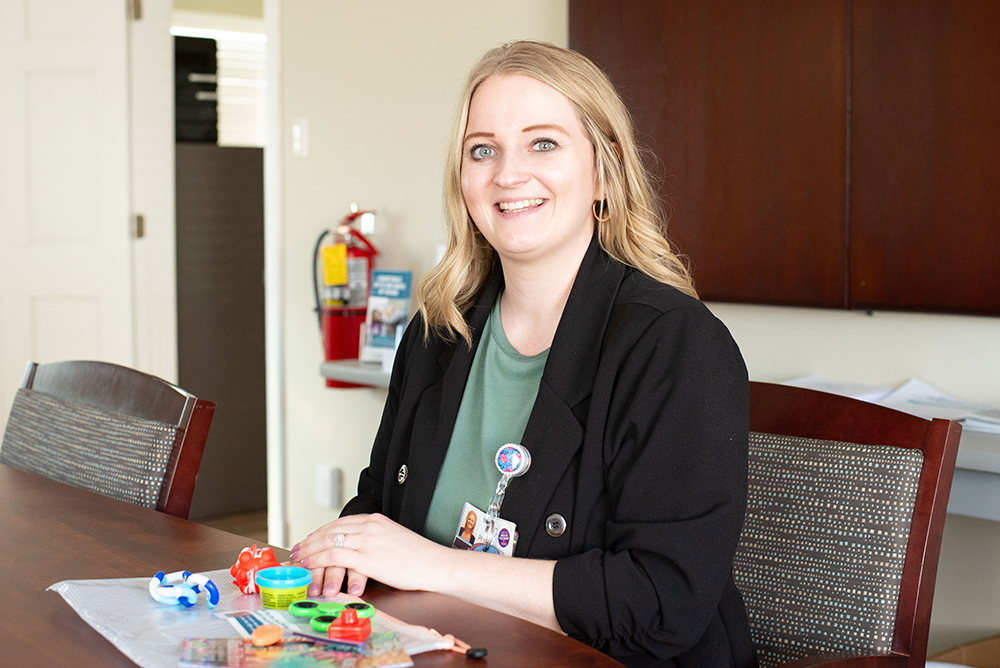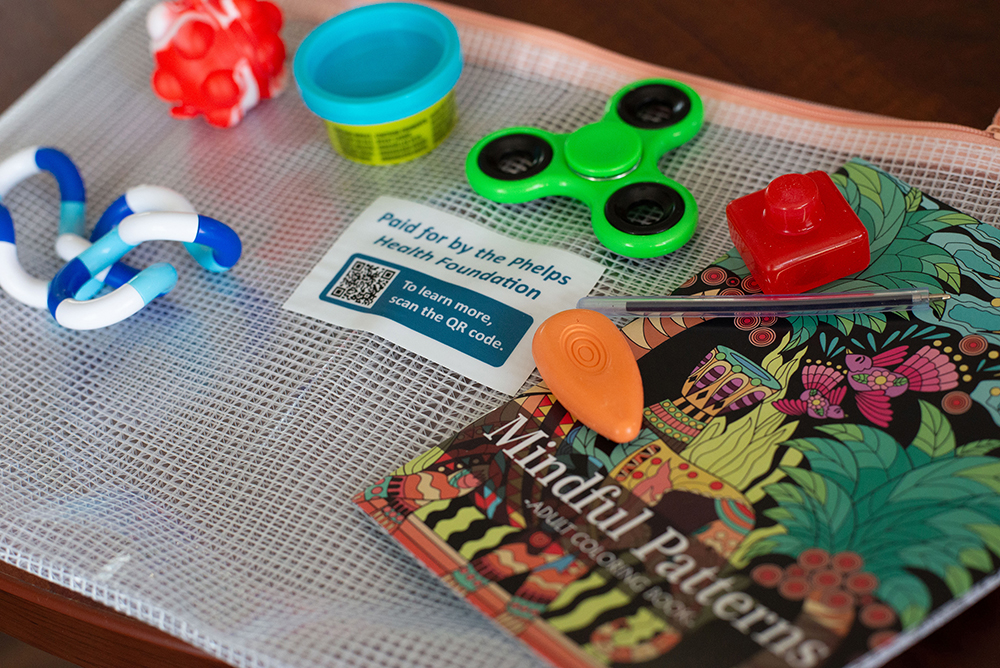Published on April 16, 2025
Read Time: 3 Minutes
Three Things to Know
- Phelps Health has introduced sensory toolkits to create a more inclusive and supportive environment for patients and visitors with sensory sensitivities, like autism or sensory processing disorders.
- These toolkits, funded by the Phelps Health Foundation, include calming items like fidget spinners and coloring books to help ease stress during healthcare visits.
- The initiative is part of a larger strategy to enhance patient care and accessibility across the health system.
Phelps Health is enhancing patient care with the introduction of new sensory toolkits — a collaborative project between the Phelps Health Foundation and the Organizational Development and Learning (ODL) Department. Launched in April, which coincides with World Autism Month, these toolkits reflect the healthcare system’s commitment to providing high-quality, accessible care that supports the whole person.
The sensory toolkits are funded by the Foundation’s Mission Fund, which supports initiatives such as facility improvements, equipment upgrades and essential patient needs. The Foundation’s support has been key to making the toolkits possible, reinforcing Phelps Health’s commitment to inclusive, patient-centered care.
Sensory toolkits provide comfort and support for patients and visitors. They include items like fidget spinners, coloring books, Play-Doh and more to help those who may experience heightened sensitivity during healthcare visits. Whether someone has autism, a sensory processing disorder or a developmental disability, these toolkits can help make the experience easier.

Emily Caudle, director of ODL at Phelps Health, is passionate about making the health system more inclusive.
"Healthcare can be overwhelming for patients who are hyper- or hypo-sensitive,” Emily said. “For those on the autism spectrum or with other sensory-processing needs, something as simple as a fidget spinner can help them focus and feel more at ease in a setting that might otherwise feel chaotic."
The importance of these toolkits extends beyond creating a more comfortable environment for patients. Emily emphasizes that their greatest benefit is inclusion.
"Inclusion is key," Emily said. "By recognizing and accommodating the sensory needs of our patients, we’re ensuring that everyone, regardless of their sensory sensitivities, can access the care they need with dignity and respect."
The ODL team is engaged in training staff to use the toolkits, which are available to all departments.
"The beauty of these toolkits is their adaptability," Emily added. "Each kit can be tailored to meet the unique needs of a patient or visitor, which makes them incredibly versatile and beneficial in various situations."

The Foundation has been instrumental in making this initiative a reality.
"We’re incredibly proud to support the sensory toolkit initiative because it aligns with our commitment to making healthcare more inclusive and accessible for all,” said Paige Heitman, director of philanthropy at the Foundation. “By partnering with departments like Organizational Development and Learning, we foster collaboration across the organization to address our patients’ unique needs and meet the diverse needs of our community."
The sensory toolkits are part of a broader, long-term strategy to enhance accessibility and patient experience. There are currently 25-30 toolkits available, and the project is poised to grow.
Patients of all ages will benefit from this thoughtful and strategic initiative. In addition to providing support for individuals with sensory processing needs, the toolkits can help prevent behavioral outbursts, create a calmer environment and reduce stressful situations.
“The Foundation is a great resource that gives departments extra support,” Emily said. “Their funding allows us to think outside the box and find innovative solutions that further our mission to provide high-quality, accessible care."
By introducing sensory toolkits, Phelps Health is building on its efforts to make healthcare more welcoming and inclusive, so every patient feels empowered and receives the support they deserve.
Help Enhance Patient Care
To learn more about the Phelps Health Foundation, contact Paige Heitman, director of philanthropy, at (573) 458-7685 or pheitman@phelpshealth.org. You also can visit the Foundation's web page to learn more.